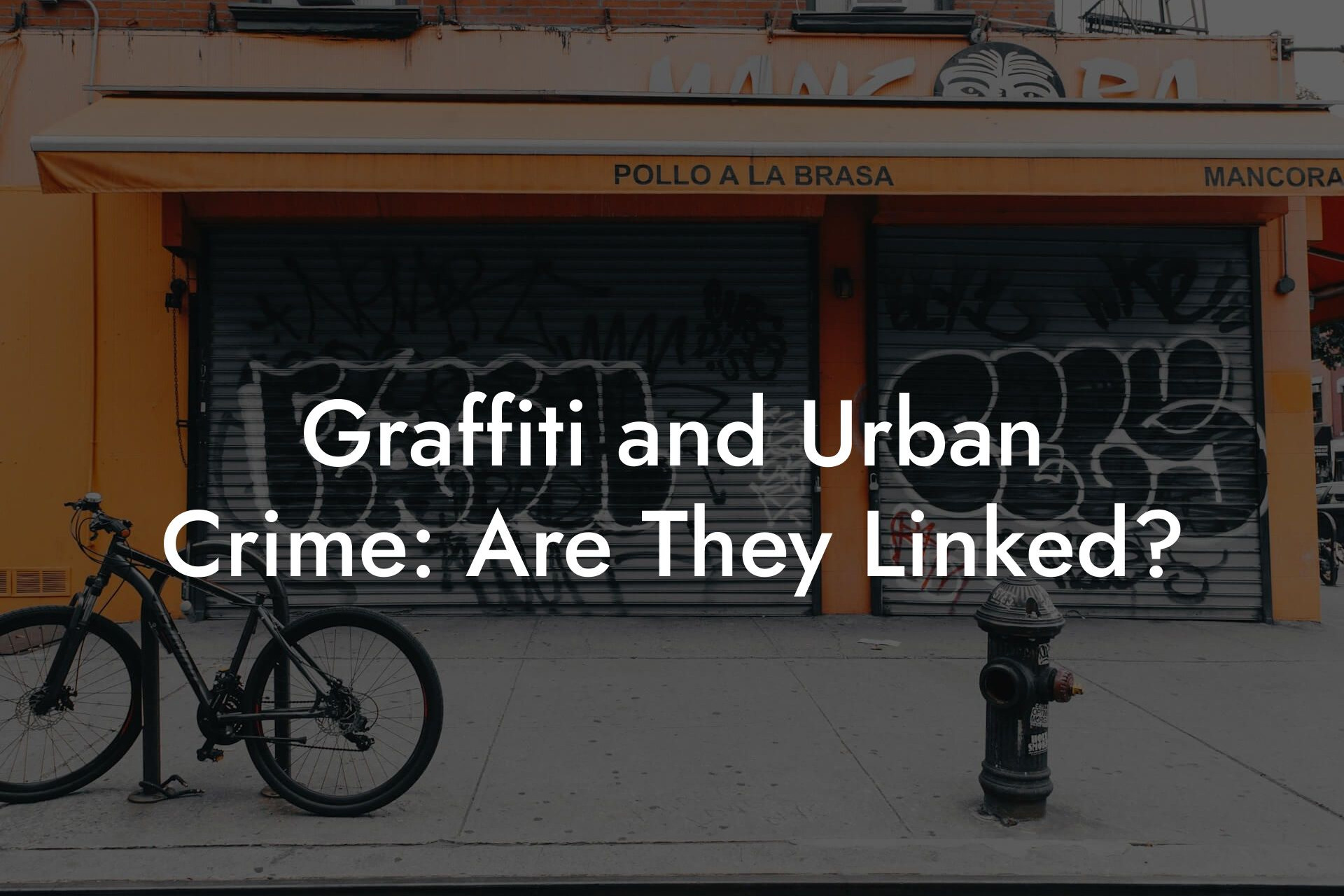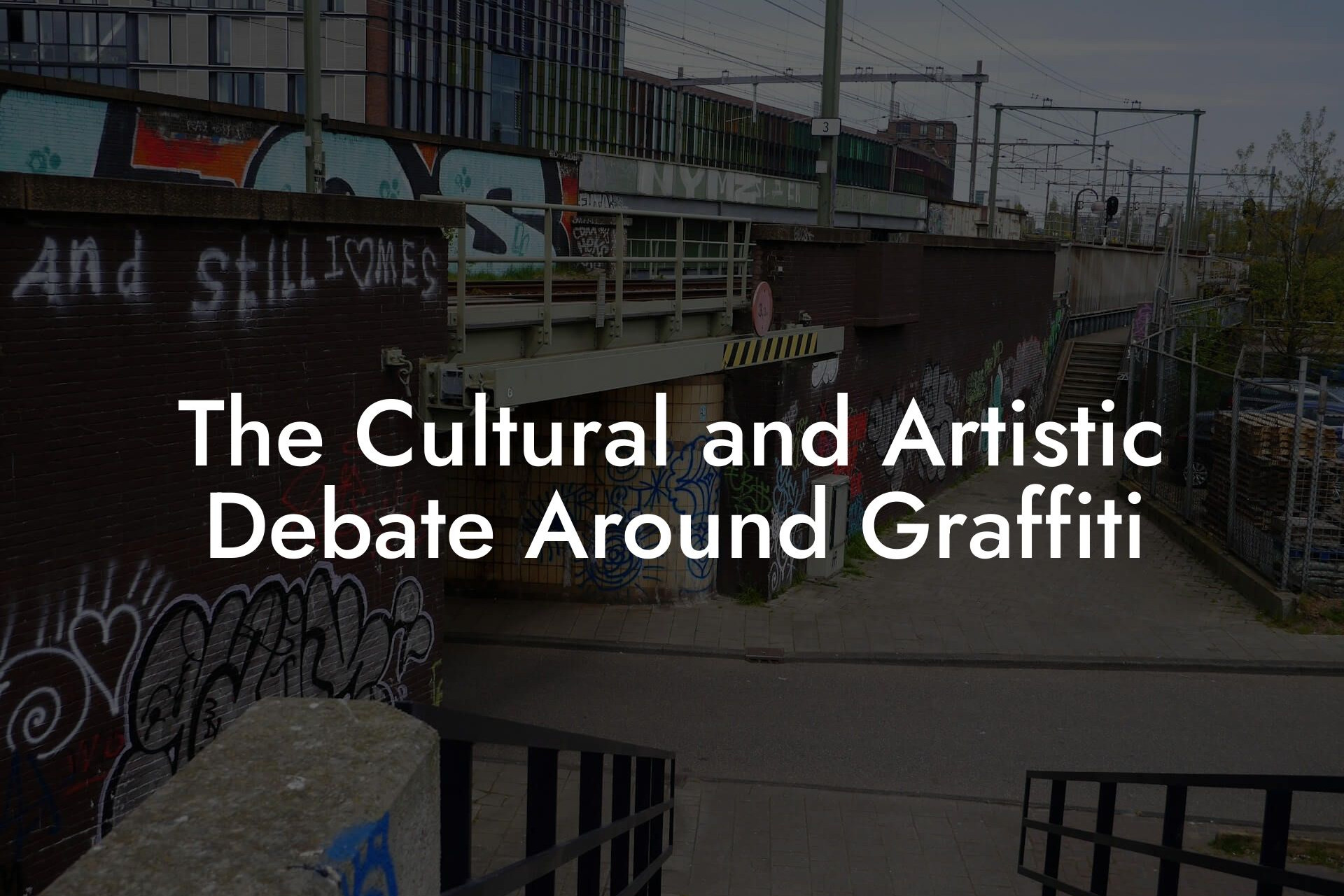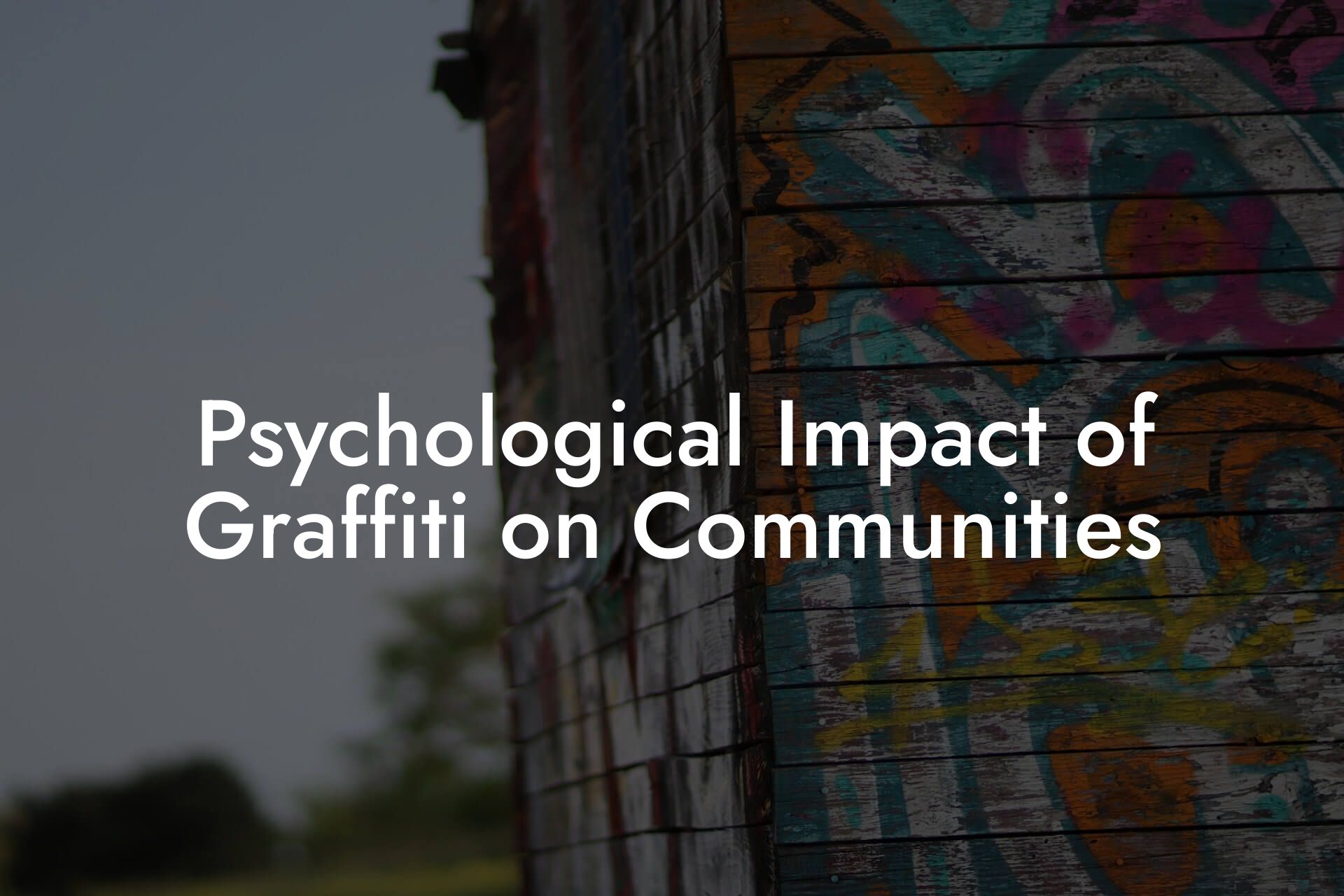Graffiti is a contentious issue in London, with opinions on its legitimacy and impact varying greatly across different areas of the city. As a business specializing in graffiti removal and vandalism clean-up, Graffiti Removal London has a unique insight into the complexities of this issue. In this article, we will delve into the public opinion on graffiti in different areas of London, exploring the diverse perspectives and attitudes towards this form of street art.
Table of Contents
- The History of Graffiti in London
- Public Opinion in Tourist Areas
- Public Opinion in Creative Hubs
- Public Opinion in Residential Areas
- The Impact of Graffiti on Property Values
- The Role of Local Authorities
- Conclusion: Understanding Public Opinion on Graffiti in London
- What Can Be Done to Address Graffiti in London?
- Frequently Asked Questions
The History of Graffiti in London
Graffiti has a rich history in London, dating back to the 1970s and 1980s when it emerged as a form of self-expression and rebellion. During this time, graffiti was often associated with punk rock and hip-hop culture, and was seen as a way for young people to challenge authority and express themselves. However, as the city began to gentrify and urbanization increased, graffiti became viewed as a nuisance and a blight on the urban landscape.
Public Opinion in Tourist Areas
In London's tourist areas, such as Covent Garden and Leicester Square, graffiti is often seen as a negative influence. Business owners and local authorities view graffiti as a deterrent to visitors, and a threat to the area's reputation and economic viability. In these areas, graffiti removal is a high priority, and strict laws are in place to prevent and punish graffiti vandalism.
Public Opinion in Creative Hubs
In contrast, areas like Shoreditch and Brick Lane, known for their vibrant street art and creative communities, have a more accepting attitude towards graffiti. Many residents and business owners in these areas see graffiti as a form of artistic expression and a way to add character to the area. In fact, some property owners even commission street artists to create murals on their buildings, blurring the line between graffiti and legitimate art.
Public Opinion in Residential Areas
In London's residential areas, opinions on graffiti are often more nuanced. While some residents view graffiti as a nuisance and a sign of decline, others see it as a harmless form of self-expression. In areas with high levels of community engagement, residents may work together to create street art projects that are tolerated or even encouraged by local authorities.
The Impact of Graffiti on Property Values
One of the key concerns about graffiti is its impact on property values. In areas with high levels of graffiti, property values can be negatively affected, as potential buyers and renters may view the area as unsafe or rundown. Conversely, areas with well-maintained street art and murals can see an increase in property values, as they are seen as desirable and trendy.
The Role of Local Authorities
Local authorities in London have a significant role to play in shaping public opinion on graffiti. In areas where graffiti is viewed as a problem, councils may implement strict laws and penalties for graffiti vandalism, and invest in graffiti removal initiatives. In areas where graffiti is seen as a positive force, councils may work with local artists and communities to create street art projects and promote cultural expression.
Conclusion: Understanding Public Opinion on Graffiti in London
In conclusion, public opinion on graffiti in London is complex and multifaceted, varying greatly across different areas of the city. By understanding the diverse perspectives and attitudes towards graffiti, we can work towards creating a more nuanced and informed approach to managing this issue. At Graffiti Removal London, we recognize the importance of balancing the need to maintain public spaces with the need to allow for creative expression and community engagement. By working together, we can create a city that is both beautiful and vibrant, and respectful of the diverse opinions and needs of its residents.
What Can Be Done to Address Graffiti in London?
So, what can be done to address graffiti in London? Firstly, it's essential to acknowledge that graffiti is a complex issue that requires a multifaceted approach. This can include investing in graffiti removal initiatives, working with local artists and communities to create street art projects, and implementing education and outreach programs to promote cultural expression and community engagement. Additionally, local authorities and business owners can work together to create designated areas for street art, providing a legal and safe outlet for artists to express themselves. By taking a proactive and collaborative approach, we can work towards creating a city that is both beautiful and vibrant, and respectful of the diverse opinions and needs of its residents.
Frequently Asked Questions
What is the general public's opinion on graffiti in London?
Graffiti is a controversial topic in London, with some people viewing it as a form of artistic expression and others seeing it as vandalism. According to a recent survey, 60% of Londoners consider graffiti to be a problem in their area, while 40% believe it adds character to the city.
What are the most common areas where graffiti is found in London?
Graffiti is commonly found in areas with high foot traffic, such as train stations, bus stops, and street corners. It's also frequently found in areas with a high concentration of youth, such as skate parks and outside schools.
How does graffiti affect local businesses in London?
Graffiti can have a significant impact on local businesses in London, as it can deter customers and create a negative perception of the area. According to a recent study, 70% of businesses in graffiti-prone areas reported a decrease in sales due to the presence of graffiti.
What are the most common types of graffiti found in London?
The most common types of graffiti found in London include tags, murals, and stencil art. Tags are the most common type, accounting for over 50% of all graffiti incidents.
What is the cost of graffiti removal in London?
The cost of graffiti removal in London can vary depending on the size and location of the graffiti, as well as the type of surface it's on. On average, the cost of graffiti removal can range from £50 to £500.
How can I report graffiti in London?
If you see graffiti in London, you can report it to the local council or the British Transport Police. You can also report it to us at Graffiti Removal London, and we'll take care of it for you.
Is graffiti illegal in London?
Yes, graffiti is illegal in London unless you have permission from the property owner. The Criminal Damage Act 1971 makes it an offence to damage or destroy property without permission, and those caught can face fines or even imprisonment.
What is the best way to prevent graffiti in London?
The best way to prevent graffiti in London is to remove it quickly and effectively. This can be done using a combination of physical removal methods, such as pressure washing, and preventative measures, such as installing CCTV cameras and increasing lighting in the area.
Can graffiti be removed from any surface?
Yes, graffiti can be removed from most surfaces, including brick, concrete, metal, and glass. However, the removal method may vary depending on the type of surface and the type of graffiti.
How long does graffiti removal take?
The time it takes to remove graffiti can vary depending on the size and complexity of the graffiti, as well as the type of surface it's on. On average, graffiti removal can take anywhere from 30 minutes to several hours.
Is graffiti removal a DIY job?
While it's possible to remove graffiti yourself, it's not always the best idea. Graffiti removal can be a complex process that requires specialized equipment and techniques to avoid damaging the surface. It's often best to leave it to the professionals.
What are the most common methods of graffiti removal?
The most common methods of graffiti removal include pressure washing, chemical removal, and sandblasting. The best method will depend on the type of graffiti and the type of surface it's on.
Can graffiti removal be done at night?
Yes, graffiti removal can be done at night, although it may require additional equipment, such as lighting, to ensure the job is done safely and effectively.
Do you offer graffiti removal services outside of London?
No, we currently only offer graffiti removal services within the London area. However, we may be able to recommend a reputable graffiti removal company in other areas.
How do I know if I need graffiti removal services?
If you've noticed graffiti on your property, it's likely you need graffiti removal services. Even if the graffiti is small or seemingly insignificant, it can still detract from the appearance of your property and attract further vandalism.
What is the difference between graffiti and street art?
Graffiti is typically defined as unauthorized writing or drawing on a surface, while street art is a broader term that encompasses a range of artistic expressions, including murals, stencil art, and installations. Street art is often commissioned by property owners or local authorities.
Can graffiti be removed from historic buildings?
Yes, graffiti can be removed from historic buildings, although it requires specialized techniques and equipment to avoid damaging the surface. We have experience removing graffiti from historic buildings and can work with conservation experts to ensure the job is done correctly.
How can I prevent graffiti on my business premises?
There are several ways to prevent graffiti on your business premises, including installing CCTV cameras, increasing lighting, and using anti-graffiti coatings on surfaces. Regularly cleaning up graffiti and removing it quickly can also help deter further vandalism.
What is the impact of graffiti on property values?
Graffiti can have a significant impact on property values, as it can create a negative perception of the area and deter potential buyers. According to a recent study, properties in areas with high levels of graffiti can see a decrease in value of up to 10%.
Can I claim compensation for graffiti damage?
Yes, you may be able to claim compensation for graffiti damage, depending on the circumstances. If the graffiti was committed by a minor, you may be able to claim compensation from their parents. You can also claim compensation from the local council or transport authority if the graffiti was on their property.
How can I report a graffiti vandal in London?
If you witness someone committing graffiti vandalism, you can report it to the police or the British Transport Police. You can also report it to us at Graffiti Removal London, and we'll pass on the information to the relevant authorities.
What is the best way to clean up graffiti?
The best way to clean up graffiti is to use a combination of physical removal methods, such as pressure washing, and chemical removal methods, such as solvents. It's also important to use protective equipment, such as gloves and goggles, to avoid injury.
Can graffiti be removed from cars?
Yes, graffiti can be removed from cars, although it requires specialized techniques and equipment to avoid damaging the paintwork. We offer graffiti removal services for cars and can work with car owners to restore their vehicle to its original condition.
Toby Doherty
Toby Doherty is a seasoned graffiti removal expert with over 20 years of experience in the industry. Throughout his career, Toby has helped countless businesses and property owners in London maintain clean, graffiti-free spaces. His extensive knowledge of graffiti removal techniques, from eco-friendly solutions to advanced technologies like laser cleaning, makes him a trusted authority in the field. Passionate about restoring urban environments, Toby combines his hands-on expertise with a commitment to staying up-to-date on the latest industry trends and innovations. When he’s not out in the field, Toby shares his insights through detailed articles, offering practical advice on everything from graffiti prevention to legal considerations.




